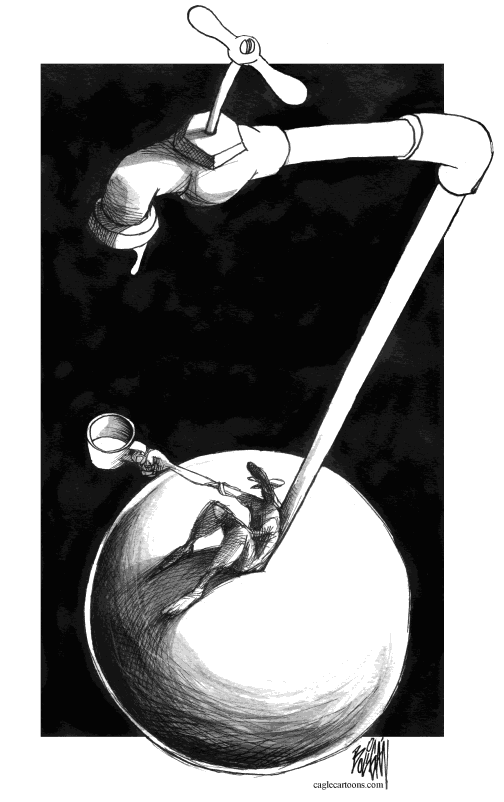Several years ago, there was an American dentist who was well known in alcohol recovery circles. He was frequently invited to speak about his circuitous and hard won arrival at sobriety because he was easily one of the most entertaining speakers ever heard on any subject. One story in particular remains with me: Having been told of the death of a colleague, and to preclude public contact while “paying his respects”, he visited the grave site where his friend would be laid to rest. As he leaned over the six-foot deep hole to bid a heartfelt, albeit inebriated goodbye, he fell into the hole. Unable to extricate himself he simply laid down for a brief nap.
When mourners arrived and gathered for the lowering of the casket there was a collective gasp of horror when a figure attempted to rise up from the grave. The dentist mused, “A normal man would have been embarrassed.” But, habit had been a great deadener and he was beyond shame. It would be many years later that he actually reached a “bottom,” deeper than the aforementioned six foot resting place, that acted as a catalyst for recovery. More on this in a bit….
Two weeks ago, amidst finals, I had to quickly return to my office to retrieve a forgotten document; en-route, I passed the classroom of one of the younger Chinese teachers. The brilliant and beautiful Ph.D graduate of one of the top schools in the world was asleep at her desk while her students chattered, used cell phones, applied make-up, read books, dozed, and smoked cigarettes. It looked more like a scene out of Chalkboard Jungle, Stand and Deliver or Freedom Writers, but without hope for a happy ending. In retropsect, the most astonishing part of the experiece was my lack of surprise and concomitant emotional indifference. I guess I have seen this too many times in too many Chinese and expat led classroom–while the teacher was awake.
Students in China, unlike students in Japan, are no longer adherents of Confucian principles. Since the days of Mao’s Cultural Revolution, where teachers were shamed, beaten, jailed and even killed (1966-1976), reverence for teachers is, at best, an arguable ideal. The average Chinese college student in many schools (there are exceptions), who thinks himself respectful, would still manage to incur the wrath of most American Professors because they have not had modeled for them the manners and etiquette expected of a western scholar.
Last week the Chinese media and the Internet were alive with rumors of this incident captured on film:
Stories abounded about the perpetrators, whose names and school were quickly made public on bulletin boards nationwide, and they had to be secreted away because a bounty had been placed on them. Allegedly 100,000 RMB (about 120,000 USD or 5 years of a school teacher’s gross salary) had been offered to the person or group that would literally beat them into respectfulness. The students, who finally apologized to the teacher, reportedly are back at school and neither the school or the teacher will further comment.
What is most disturbing to me, other than the physical attack and threat of harm to the teacher, is that the scene is all too typical of what many pedants are asked to endure in China. The industrialization of education has led the spoiled offspring of one-child families (Little Emperors), especially the newly prosperous, to believe that they have a right to lord their rich consumer status over low-paid, poorly prepared, and administratively unsupported educators. Teachers are expendable, and salvaging tuition is a higher calling.
Many of us who have been here for several years manage our classrooms with strict discipline and genuine concern for student well-being. Eventually, our sincerity is believed and that, in turn, generates a certain measure of respect. This allows for a reasonably manageable classroom where the handful of students serious about language acquisition and cultural gain can actually glean something useful.
In some rural schools, where teachers might be as paid as little as $50.00 USD per month, educators sometimes resort to brutality against students in a quest for control. There are laws against such behavior, but they are not often enforced. The students, I beieve, are rebelling against a system heavily reliant on memorization, humiliation and devaluation of self. I do not absolve abuse teachers of any negligence or liability by believing that their behavior is part-and-parcel of a dysunctional system. “Chinese education has a long history of corporal punishment,” says Thomas Gold, a University of California-Berkeley sociologist who studies China. Teachers’ “social status remains low, so they may be taking out their own frustrations on laggard kids.” I could not agree more.
My last school, the one where I just resigned, caters to wealthy, underachieving children from privileged families. The school virtually sells advanced (and unaccredited) degrees to business and government leaders from the mainland; accepts known plagiarized theses from students who may or may not have attended classes; admits almost any undergraduate (these programs are accredited) with a healthy bank balance; hires raw mainland talent, looking for a foothold in teaching, at a fraction of the wages paid by government established schools, and with only ten-month teaching contracts containing no provisions for retirement; they protect a registrar who holds American and Chinese Passports and the deanship over five departments who brags about hiding his income from the IRS via a Hong Kong bank; they pad their website faculty list with professors from famous universities who are not active teachers; have investors on their board with government ties who shower the school with land and facility donations; and have a turnover rate for staff that is higher than the local McDonalds. The teachers, though better paid, feel no more self worth than those in rural environs.
It is hard for students to command respect for an education entity, such as the one I left. It is blatantly greedy and inept. But, many, many other Chinese schools, especially privatized ones, have also abandoned functional educational models in the pursuit of profit. And with only 1/3 of graduating seniors assured of work this year many students cannot muster the motivation to respect a system that does little for their future, less for their net worth and still condemns their teachers to social contempt.
It is no wonder that 40% of my former school’s Freshman class applied for transfer. And 20% of the best, brightest and ethical at the school were accepted by other institutions and thankfully will leave. Others wish they would have followed suit because they will be left behind with an even further demoralized and unruly student and faculty population. Only 40% of those students educated abroad will return to China to share the skills they will acquire. My guess is they will avoid the teaching profession if possible.
Any normal system would be embarrassed. It is necessary to examine ways to curb profiteering, improve classroom conditions and teaching methodologies by educating educators and then rewarding them accordingly. It is time to foster respect for those entrusted with educating China’s new managers.
In a country now increasingly pressured to compete globally in business–via skills and quality and not price–while tariffs, environmental concerns and increasing production fees lower profits, one would think China would sober up and ask for a ladder to be lowered to rescue a system now forty years stranded nearly six-feet under.
China Business,
China Editorials,
China Expats,
Chinese Internet,
Chinese Media,
Confucius Slept Here,
Expats,
In the news,
Intercultural Issues,
Macau University of Science and Technology,
Teaching in China,
The Internet,
Videos,
中国,
中文





